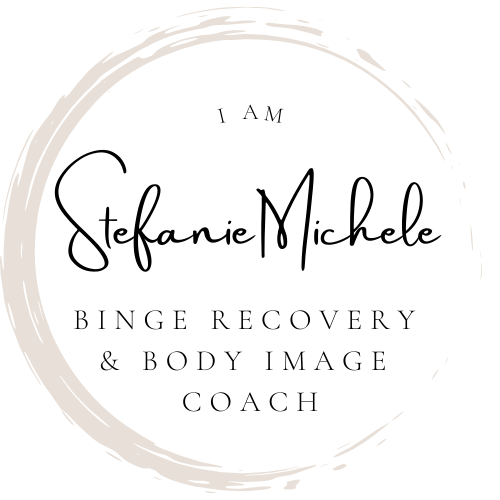Anti-Diet Thanksgiving: Family, Food, and Boundaries.
It’s Thanksgiving week here in the States, and the kickoff to the holiday season.
More than any other topic I get asked about during the holidays — even more than how to handle the food itself — is how to handle being around friends and family after a season of weight gain.
The general range of focus usually surrounds:
setting boundaries.
staying calm in vulnerable conversations.
how to explain Intuitive Eating or Health at Every Size.
what to wear and how to handle “getting dressed” triggers.
judging ourselves in the midst of it all.
Here are my top tips and strategies to keep in your back pocket this holiday:
Don’t over-explain or justify your choices.
If you find yourself easily triggered and move into a defensive (fight-or-flight) or people-pleasing (fawning) mode, you may find yourself engaging in arguments or over-explaining yourself. You don’t have to justify yourself to anyone. It’s okay for you to: eat, say “no more, thank you,” gain weight, lose weight, eat carbs, have seconds, and/or not participate in discussions you don’t want to participate in. The temptation to have everyone agree with us and/or understand us is related to our sense of feeling safe, but it is not always possible to have everyone agree with and/or understand us. Protect your mental health by owning your choices without feeling responsible for how others feel about them.
Consider self-regulation as your first line of defense.
If your system gets triggered, you may move out of a level-headed, calm place and into a primal, impulsive one. From a dysregulated headspace, we are more likely to: self-abandon, act impulsively, say things we don’t want to say, misrepresent ourselves, lose connection with our body’s cues, feel defensive, withdraw, attack, doubt ourselves, forget our tools. Identify what it feels like when you react to a trigger. Does your heart rate increase? Does your breathing get shallow?Does your jaw clench? Does your head get fuzzy and disconnected? Do your legs jitter? When you have awareness of moving into a more primal place, offer yourself a few seconds to come back to center. Use grounding techniques like slower, deeper breathing; feeling the chair or floor beneath you; looking around the room and naming 5 blue thingsyou can see; listening for sounds near and far; counting backwards from 27 by 3’s; or simply putting your hand to your chest and feeling your own presence again. Staying in your calm and connected headspace may be your most valuable tool.
Offer brief information instead of lectures.
If someone in your family is questioning Intuitive Eating or Health at Every Size (or any other concept that you’re integrating), it is not your responsibility to provide a power-point presentation on the subjects. Instead, have a few go-to responses like: “I’m learning to understand Health as more than just weight. Right now I’m focusing on my mental well-being and decreasing stress” or “I’m trying not to judge my food choices anymore. I realized that controlling my food hasn’t been helping me.” or “all bodies are good bodies. I’m working on being less judgmental about how people look and prefer to focus on how we make each other feel!” Depending on your audience, you may choose to dive deeper into these topics, but if engaging in a conversation feels risky, you can leave it at a simple one-note answer.
Wear something COMFORTABLE.
I cannot stress this enough. Comfortable means physically comfortable and psychologically comfortable. (Psychologically comfortable = you feel safe and relatively confident.)
“Stay With Me.”

